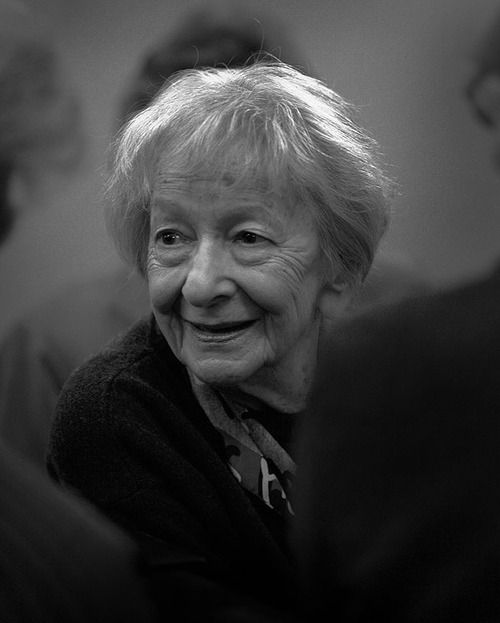Poet of the Day: Wislawa Szymborska

While Poland has brought us some amazing names in poetry that, even in their different translations, can truly touch us, Wislawa Szymborska’s works employ great wit and deceptive simplicity while delving deep into the complexities of all things and their validity. She won the Nobel Prize in Literature in 1996
Here are some quotes from her to poets on how to (and not to) write poetry, originally appearing in the Polish newspaper, Literary Life. (Translated by Clare Cavanagh)
On translation: “The translator is obliged to be faithful not only to the text. He must also reveal the full beauty of the poetry while retaining its form and preserving as completely as possible the epoch’s spirit and style.”
On free-verse: “You treat free verse as a free-for-all. But poetry (whatever we may say) is, was, and will always be a game. And as every child knows, all games have rules. So why do the grown-ups forget?”
On straight speaking: “The fear of straight speaking, the constant, painstaking efforts to metaphorize everything, the ceaseless need to prove you’re a poet in every line: these are the anxieties that beset every budding bard. But they are curable, if caught in time.”
On ordinary things: “Rilke warned young poets against large sweeping topics, since those are the most difficult and demand great artistic maturity. He counseled them to write about what they see around them, how they live each day, what’s been lost, what’s been found. He encouraged them to bring the things that surround us into their art, images from dreams, remembered objects. ‘If daily life seems impoverished to you,’ he wrote, ‘don’t blame life. You yourself are to blame. You’re just not enough of a poet to perceive its wealth.’ This advice may seem mundane and dim-witted to you. This is why we called to our defense one of the most esoteric poets in world literature—and just see how he praised so-called ordinary things!”
Here are a few of her works to start, but any of her three volumes that have been translated to English are well-worth a trip to your bookstore. Or you can read her in the original Polish if you learn it first.
The Three Oddest Words
When I pronounce the word Future,
the first syllable already belongs to the past.
When I pronounce the word Silence,
I destroy it.
When I pronounce the word Nothing,
I make something no non-being can hold.By Wislawa Szymborska
Translated by S. Baranczak & C. Cavanagh
Utopia
Island where all becomes clear.
Solid ground beneath your feet.
The only roads are those that offer access.
Bushes bend beneath the weight of proofs.
The Tree of Valid Supposition grows here
with branches disentangled since time immemorial.
The Tree of Understanding, dazzlingly straight and simple,
sprouts by the spring called Now I Get It.
The thicker the woods, the vaster the vista:
the Valley of Obviously.
If any doubts arise, the wind dispels them instantly.
Echoes stir unsummoned
and eagerly explain all the secrets of the worlds.
On the right a cave where Meaning lies.
On the left the Lake of Deep Conviction.
Truth breaks from the bottom and bobs to the surface.
Unshakable Confidence towers over the valley.
Its peak offers an excellent view of the Essence of Things.
For all its charms, the island is uninhabited,
and the faint footprints scattered on its beaches
turn without exception to the sea.
As if all you can do here is leave
and plunge, never to return, into the depths.
Into unfathomable life.
By Wislawa Szymborska
From “A large number”, 1976
Translated by S. Baranczak & C. Cavanagh
margheritanikolaevna liked this
azo82 reblogged this from ecimagazine
azo82 liked this
friedbrat reblogged this from notshani
notshani reblogged this from ecimagazine
coolkierkegaard liked this
ecimagazine posted this